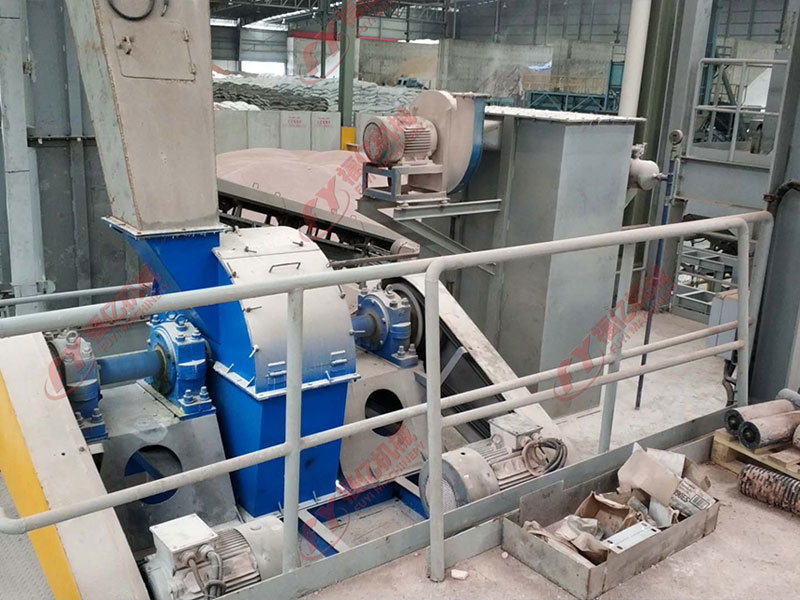
News & Events
Dh Series Briquetting with Roller Presses: Revolutionizing Agricultural Machinery for Efficient Processing
Release time: 2023-11-14
Introduction:
As the agricultural food industry constantly strives for efficiency and sustainability, the advent of the DH series briquetting with roller presses has brought a significant transformation. This article explores the revolutionary technology that is reshaping the landscape of agricultural machinery. From understanding the working principle to exploring its wide-ranging applications, we delve into an era of enhanced productivity and streamlined processes.
1. The Working Principle of DH Series Briquetting with Roller Presses:
DH series briquetting with roller presses operates on a straightforward principle. The raw agricultural material is fed into the press, where it is compressed between two counter-rotating rollers. The immense pressure applied during this process results in the formation of compact and uniform briquettes. These briquettes offer numerous advantages over traditional processing methods.
2. Advantages and Benefits of DH Series Briquetting with Roller Presses:
The incorporation of DH series briquetting with roller presses brings a multitude of benefits to the agricultural food industry. Firstly, it enables efficient and cost-effective handling, transportation, and storage of agricultural residues and by-products. The resulting briquettes have higher density and reduced moisture content, leading to improved combustion efficiency and reduced greenhouse gas emissions. Additionally, these briquettes possess a uniform shape, facilitating their use in automated feeding systems. Moreover, this innovative technology contributes to waste reduction, promotes sustainability, and optimizes resource utilization.
3. Applications in the Agricultural Food Sector:
DH series briquetting with roller presses finds extensive applications in the agricultural food sector. This technology is particularly beneficial for processing agricultural residues, such as straw, husks, shells, and other biomass materials, into valuable biofuels. The briquettes produced can be used as a renewable energy source, replacing fossil fuels and reducing dependence on non-renewable resources. Furthermore, these briquettes serve as a reliable source of heat for various agricultural processes, including drying, cooking, and heating.
Conclusion:
The introduction of DH series briquetting with roller presses marks a significant milestone in the agricultural machinery industry. This innovative technology offers a host of advantages, including enhanced efficiency, reduced waste, and increased sustainability. By transforming agricultural residues into valuable briquettes, this revolutionized machinery contributes to a greener and more productive agricultural food sector. Embrace the DH series briquetting with roller presses and unlock the full potential of your agricultural machinery.
As the agricultural food industry constantly strives for efficiency and sustainability, the advent of the DH series briquetting with roller presses has brought a significant transformation. This article explores the revolutionary technology that is reshaping the landscape of agricultural machinery. From understanding the working principle to exploring its wide-ranging applications, we delve into an era of enhanced productivity and streamlined processes.
1. The Working Principle of DH Series Briquetting with Roller Presses:
DH series briquetting with roller presses operates on a straightforward principle. The raw agricultural material is fed into the press, where it is compressed between two counter-rotating rollers. The immense pressure applied during this process results in the formation of compact and uniform briquettes. These briquettes offer numerous advantages over traditional processing methods.
2. Advantages and Benefits of DH Series Briquetting with Roller Presses:
The incorporation of DH series briquetting with roller presses brings a multitude of benefits to the agricultural food industry. Firstly, it enables efficient and cost-effective handling, transportation, and storage of agricultural residues and by-products. The resulting briquettes have higher density and reduced moisture content, leading to improved combustion efficiency and reduced greenhouse gas emissions. Additionally, these briquettes possess a uniform shape, facilitating their use in automated feeding systems. Moreover, this innovative technology contributes to waste reduction, promotes sustainability, and optimizes resource utilization.
3. Applications in the Agricultural Food Sector:
DH series briquetting with roller presses finds extensive applications in the agricultural food sector. This technology is particularly beneficial for processing agricultural residues, such as straw, husks, shells, and other biomass materials, into valuable biofuels. The briquettes produced can be used as a renewable energy source, replacing fossil fuels and reducing dependence on non-renewable resources. Furthermore, these briquettes serve as a reliable source of heat for various agricultural processes, including drying, cooking, and heating.
Conclusion:
The introduction of DH series briquetting with roller presses marks a significant milestone in the agricultural machinery industry. This innovative technology offers a host of advantages, including enhanced efficiency, reduced waste, and increased sustainability. By transforming agricultural residues into valuable briquettes, this revolutionized machinery contributes to a greener and more productive agricultural food sector. Embrace the DH series briquetting with roller presses and unlock the full potential of your agricultural machinery.
Keywords: dh series briquetting with roller presses
 fy@fuyigz.com
fy@fuyigz.com
 0086-519-80181222
0086-519-80181222





















 fy@fuyigz.com
fy@fuyigz.com
 +61 426861120
+61 426861120
 Message
Message
